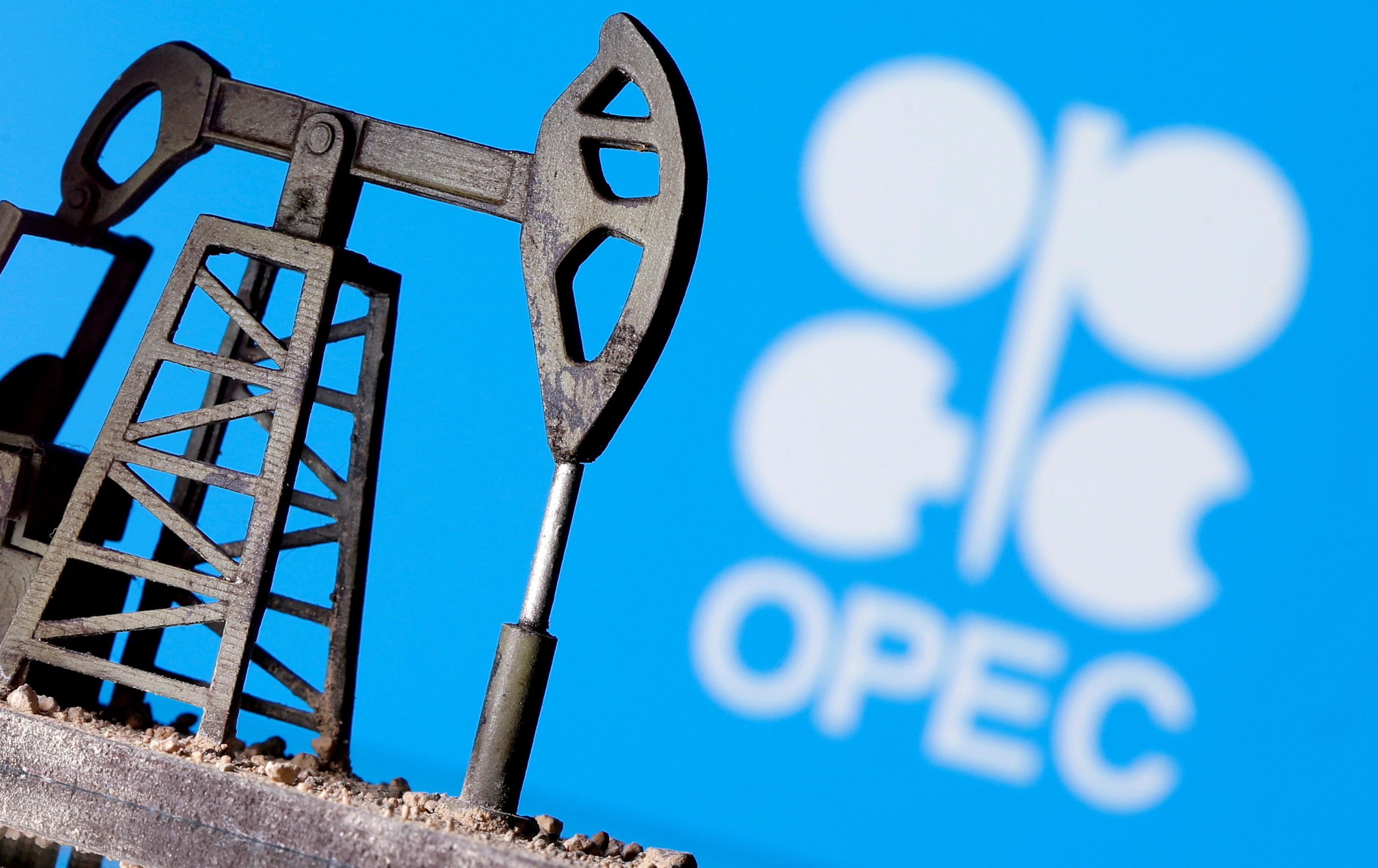An oil cold war in the offing: Omicron variant adds more complication to the market
The Biden administration’s moves indicate a block to balance Opec is in the making as the US battles to control oil prices, writes Ahmed Aboudouh


Your support helps us to tell the story
From reproductive rights to climate change to Big Tech, The Independent is on the ground when the story is developing. Whether it's investigating the financials of Elon Musk's pro-Trump PAC or producing our latest documentary, 'The A Word', which shines a light on the American women fighting for reproductive rights, we know how important it is to parse out the facts from the messaging.
At such a critical moment in US history, we need reporters on the ground. Your donation allows us to keep sending journalists to speak to both sides of the story.
The Independent is trusted by Americans across the entire political spectrum. And unlike many other quality news outlets, we choose not to lock Americans out of our reporting and analysis with paywalls. We believe quality journalism should be available to everyone, paid for by those who can afford it.
Your support makes all the difference.The aggressive debut of the omicron variant is set to further complicate matters for the oil market, as the formidable Opec+ group gather to talk today.
But it is not the only problem facing members of the group, made up of countries led by Russia, which are not members of Saudi-led Opec and export crude oil, will have to deal with when they chat on Zoom to decide output policy for January.
Oil prices tumbled on Tuesday after Moderna chief Stéphane Bancel warned that existing vaccines could be less effective against the new variant than previous strains. And oil futures ended November with the worst monthly decline since the pandemic’s outset.
The omicron variant has increased market volatility and fuelled fears about crude demand, as the US and other economic powerhouses seek lower prices and stability, and many smaller economies still struggle to rebound from the pandemic depth.
The group has been steadily releasing additional 400,000 barrels per day every month since the summer after they imposed severe curbs on output to cut 10 million bpd to stop the drop in demand due to lockdowns. As the global economy started to recover, the gradual release of oil helped exporters rebuild their balance sheets.
OPEC+ still has some 3.8 million bpd of cuts in place. The variant might pressure the group to pause its output increases as more travel restrictions loom.
For now, possible fresh oil cuts on Thursday might be tolerated by US-led importers who want to see exporters pump more oil to curb prices and boost economic recovery. But in the long run, the group’s hesitance to increase crude supply could intensify an already heated geopolitical standoff.
Throughout last month, the White House tried to present Opec+ with incentives to increase their output, but the administration’s pleas fell on deaf ears in Riyadh and Moscow.

Then, US President Joe Biden announced Washington would release 50 million barrels from the US strategic national reserves and reached out to the other top four importers, China, India, Japan and South Korea, to convince them to follow suit. Together with the US, those are the worlds biggest crude importers.
India later announced plans to pump additional five million barrels from its strategic reserves into the market, while the UK said it would release 1.5 million barrels.
But experts say this arm-twisting diplomacy could stop short of forcing a dip in prices.
“Biden’s options aren’t great. He can release oil from the strategic reserve, which he has done. That has provided some marginal help,” Jim Krane, energy analyst at Rice University’s Baker Institute in Houston, told The Independent.
“The best way to push prices down is to ask Saudi Arabia to raise production. This is essentially asking the Saudis to take a pay cut, and it’s a big ask. The Saudis have thus far refused. So, the US government has decided to play poker with Opec.”
The best way to push prices down is to ask Saudi Arabia to raise production. This is essentially asking the Saudis to take a pay cut
US lawmakers have threatened to deploy the 1890 “No Oil Producing and Exporting Cartels Act” that would subject Opec and its allies to antitrust laws and designate the organisation as an “illegal cartel” exposed to US sanctions if passed by the Senate. The US state department has opposed the legislation - known as NOPEC - in the past based on fears of diplomatic fallout, which still make it difficult to pass.
But putting the law draft back on the table by the administration could be a powerful warning shot yielding favourable results.
“This legislation would be a disaster for oil prices and will probably never be signed into law, but it represents a serious threat to Saudi interests. If the so-called NOPEC bill looks likely to pass, we may see more cooperation from the Saudis,” Krane said.
The US-led lobbying efforts showed a form of unity among oil importers as the Biden administration tried to balance geostrategic power in the energy sector.
But, historically, consecutive US administrations showed an inability to control oil prices. When the oil market issues required intervention by releasing stocks from strategic reserves, the US opted to work with the 30 industrialised energy-consuming nations forming the Paris-based International Energy Administration block.
US allies Japan and South Korea are members of the IEA, but China and India are not. The US overlooked its European allies, who make the majority of the IEA members, in this oil prices crunch as they remain occupied by the hike in natural gas prices and less concerned than Asian nations about crude oil prices.

So, just as Saudi Arabia-led Opec reached out to Russia and others to build the Opec+ group, the Biden administration might lead discussions on creating an IEA+ block of powerful oil importers.
If it sees the daylight, this organisation could inflame the competition for influence and split the energy market into a cold war-like bipolarity. And, ironically, the US and Russia would be again on opposite sides.
But Opec+ might respond, in the Thursday meeting, by pausing the increases in output, which will signal defiance and an ability to take steps detrimental to US interests.
“Opec still has cards to play. Over the past year, OPEC’s been giving the world a master class in multilateral unity. The cartel could take an aggressive path - calling off its production increases or even reversing them,” Kran said.



Join our commenting forum
Join thought-provoking conversations, follow other Independent readers and see their replies
Comments